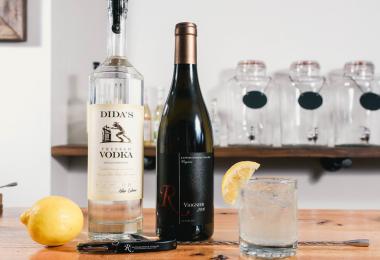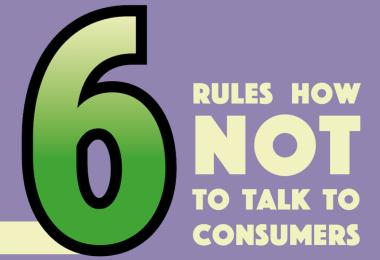Meininger’s International Conference is normally an upmarket affair, held in the conference room of the Hotel InterContinental in Dusseldorf, on the Saturday before ProWein begins. The audience sit at rows of tables that are well-stocked with drinks of all kinds, notebooks and pens and, of course, the obligatory mints. Lunch is a lavish buffet put together by the hotel chefs and served in a luxurious dining room.
This year, the water and apple juice were on the table, as usual, but everyone sat alone, the tables properly socially distanced from one another. It was held at the CCD Congress Center, Düsseldorf, part of the complex where ProWein itself is usually held. And it took place in early October, instead of March.
Welcome to running a conference in a pandemic. There was something slightly spooky about being on the grounds of Messe Dusseldorf, with nobody queuing for the cloak rooms, or running at top speed for an appointment.
But the speakers were excellent, as usual, and the insights on the topic of the younger generation in Germany and their relationship with wine were penetrating – even if the conversation was dominated by Covid-19.
What’s the starting point for wine?
Heinz Grüne from the Rheingold Institut gave an overview of qualitative research done on young German consumers, who were split into two groups of 20-29 and 30-39. The 20-somethings are “real digital natives who don’t know fixed line telephones or the world or five or six television stations,” Grüne told his mostly middle-aged audience. “They grew up with smartphones and are very eloquent and self-assured, and they are fast. They can install things very quickly and search very quickly.” But for all this, he said, they had almost no knowledge of wine. “They knew about red and white and perhaps rosé, and they knew sweet and dry wines.” Ominously, what they were clear about is that “what is lacking in wine is the coolness factor. People say that wine is not cool enough to drink in public or order in a restaurant”. For these younger Germans, “they think wine is the drink of established people – it’s for when grandfather celebrates his birthday”.
Things are different for the over 30s, who were born into an analogue word and can remember a time before smartphones. “They have made their career, they have their own family, and they know more about wine,” said Grüne. More importantly, they take advantage of Germany’s generous leave provisions and go on holiday. “Vacations make you try out new things. You see new things and try out the regional specialities. These people have some knowledge regarding grapes varieties and regions.”
Grüne said that wine plays a symbolic function for this age group. “They are showing that by drinking wine they have a certain maturity and experience in life.” He added that rivalries emerged in the focus groups, as some of the respondents wanted to show that they knew more about wine than the others. “So wine is sometimes a product that people use to show their maturity and expertise.”
As for what gets people engaged with wine, Grune was blunt. “In the beginning, it’s the effect. The effect of the alcohol is a major part of the process.” While people will grow out of this, the most important thing is to get them engaged with wine. This is, unfortunately, “marked by coincidence. If your parents consumed a lot of wine, then young people have the possibility to participate and test out what they like”. Engaging with young people who have grown up without any wine examples is harder, because “there aren’t many touchpoints for wine out of the home. The occasions where wine is drunk are not every day”.
Not surprisingly, even those young people who drank wine knew almost nothing about brands or winemakers. And unless they had seen their parents buy from wineries, they considered the supermarket the right place to buy wine. “People weren’t interested about messages of ‘my soil is the best’ or self-praise, and statements of abstract values were seen as irrelevant.”
To attract young people, Grüne advised dismantling as many obstacles as possible, from making the labels simpler to talking less about soil. “You have to show the wine industry and its protagonists in a lively way. Make it playful and humorous.”
He also had a practical suggestion – young people are at home, so “there should be somebody driving around with barrels of beer and wine, selling it from the truck”.
Who has the spending money?
Professor Gergely Szolnoki from Hochschule Geisenheim University gave a presentation based on the outcome of two studies, one of which had surveyed 2,000 people. The news was – for the next few years at least – fairly good. Professor Szolnoki said it was clear that people between the ages of 50 and 60 consume the most wine, and that female consumers are embracing wine in large numbers. The big demographic issue in Germany is that in just two decades time, the group of wine consumers who are drinking the most today will be in their 70s and 80s, at which point their consumption will slump. Will the people who come after them embrace wine as enthusiastically?
“The main topic I was interested in, is what type of alcohol does the younger generation consume? Will they drink as much in 10 or 20 years? I have no answer,” he said. “GenX has done a good job of wine drinking. They’re still drinking as much as their parents and grandparents did, but they’re on their way out.”
In Germany, young people can drink wine or beer from age 14, if they are supervised by an adult. At 16, they can buy beer or wine, but not spirits. “Around 50% of young adults taste alcohol for the first time before they are of legal age – some even start at 12,” said Professor Szolnoki. “That rises at age 13 and 14, peaking at 18,” meaning that 85% of Germans have tasted alcohol by age 16.
And yet, says Professor Szolnoki, this doesn’t mean they are setting up to be lifelong wine drinkers, because the first experience is usually beer. “Wine consumption happens later.”
As with Heinz Grüne, Professor Szolnaki suggested there is no clear pathway into wine and that’s what is lacking. Perhaps Grüne’s idea of a wine-dispensing truck is something for the trade to think about seriously.
One point that did come up in the conference is the question of whether wine companies should be focusing so much on what tomorrow’s consumer may or may not be doing, when today’s middle-aged wine lovers are still consuming plenty of wine. Instead of focusing so heavily on millennials, why not spend more time lavishing affection on the Gen-Xs and younger Baby Boomers, who are still in the peak spending years of their lives, and more than willing to spend money on good wine?
And for anybody willing to invest in drinkers, there’s one place they should definitely be thinking about: Germany.
The German market is booming
Professor Simone Loose from Geisenheim gave a compelling presentation on the German market during lockdown. In a nutshell: frequent wine drinkers mostly said their consumption hadn’t changed, people who rarely drank wine drank even less, but one third of frequent consumers drank much more than usual.
“People wanted to do something for themselves,” she said. “They couldn’t go on holiday, so it was like a little treat. Some people were trying to distract themselves, or they were bored. That is unpleasant but it’s a fact.”
Overall, however, the German wine market is booming, despite the loss of the on-trade. And that means one thing: “There is a lot of wine waiting to come into Germany,” said Professor Loose, as wine producers from around the world recognise the opportunity.
It was an interesting observation, because for years many producers – particularly from the New World – have seen Germany as a low-cost market where it’s difficult to make money. But in the walkaround tasting held after the conference, many producers said their sales were skyrocketing and they intended to invest more in the German market.
Overall, it was a paradoxical event. Düsseldorf had just had another major outbreak at the time and people were on edge, wondering if more lockdowns were coming. But at the same time, the mood was good, as it was clear there is plenty of activity and opportunity in Germany, waiting to be seized. Especially for anybody with a truck.








